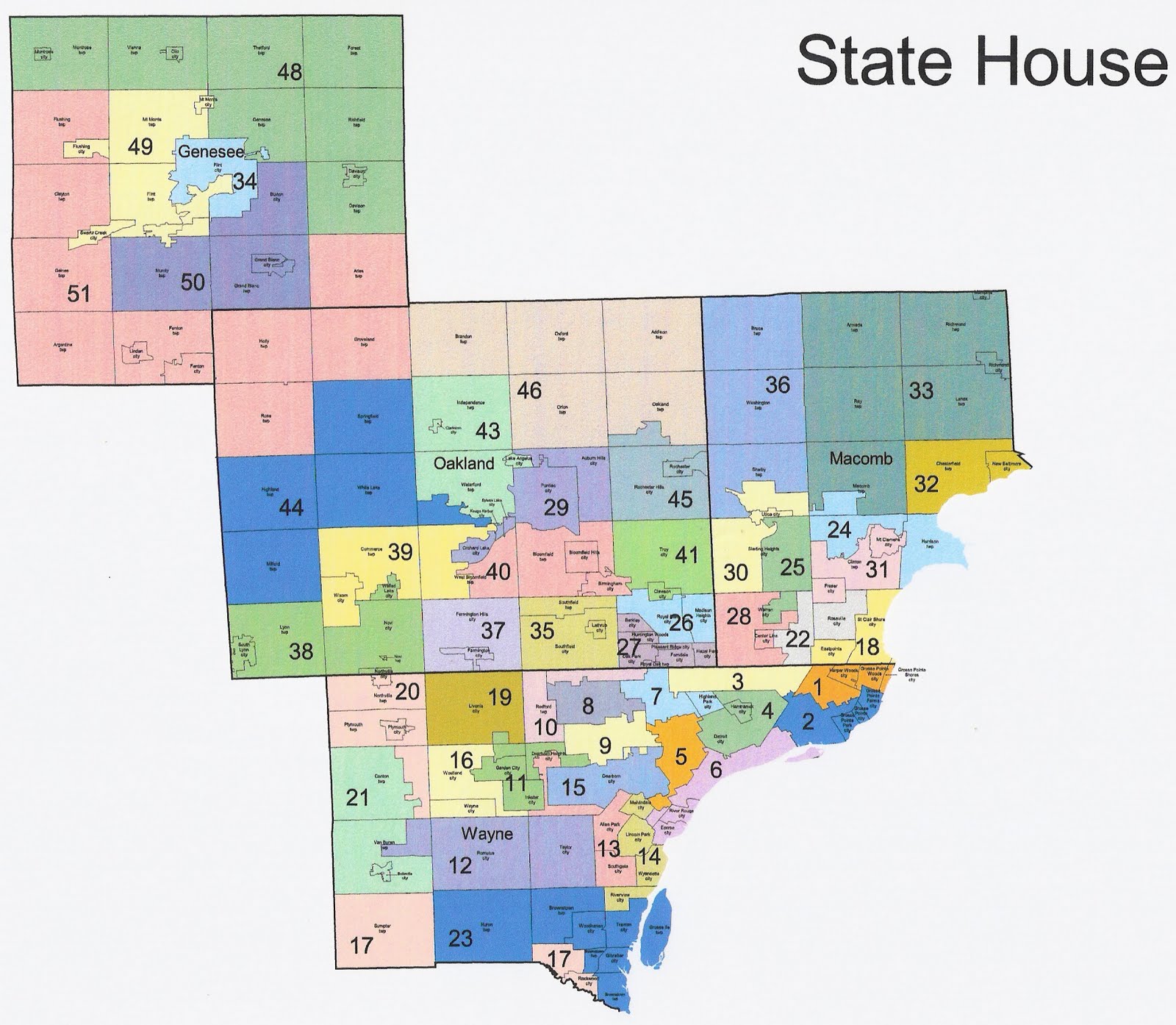A proposed court settlement announced today by new Secretary of State Jocelyn Benson (above), an attempt to end a lingering court fight claiming widespread gerrymandering of Michigan election districts, would focus only on 11 state House districts.
A federal lawsuit filed by the League of Women Voters and various plaintiffs associated with the Democratic Party had sought a court order to redraw dozens of U.S. House, state Senate and state House districts that the LWV claimed were configured in 2011 to give the GOP an unfair advantage in elections. Republican Party officials have fought the suit and thrashed the settlement proposed by Benson, a Democrat.
While many Democratic complaints about Republican-controlled redistricting have focused on the legislative districts in southeast Michigan that feature squiggly lines, under the proposed settlement just two House districts in Metro Detroit, both centered in Macomb County, would be redrawn before the 2020 elections.
In fact, the settlement proposed by Benson would have no impact north of Saginaw, in territory that is considered heavily Republican. As the state’s chief elections official, Benson inherited the role of defendant in the case when she took office earlier this month, putting her in a hot, partisan spotlight over how she would handle the gerrymandering dispute.

Marino represents Harrison Township, northern Clinton Township and southern Macomb Township. Hornberger represents Chesterfield Township, New Baltimore and some adjacent rural areas of St. Clair County.
Benson said the negotiated deal, accepted by the LWV and Democratic plaintiffs, would require redrawing “just the most 11 egregious state House districts” challenged in the federal lawsuit. After the November elections, the GOP maintains a 58-52 edge in the state House.
“I believe today’s settlement strikes a balance between recognizing the unconstitutionality of the 2011 redistricting maps while reaching a remedy that is limited in scope and impact given the length of time these districts have been in place,” said Benson, who replaced former GOP Secretary of State Ruth Johnson as the defendant in the case.
Regardless of the outcome, any court-approved pre-2020 redistricting would be a temporary change, given Michigan voters’ approval in November of redistricting reforms. A bipartisan, independent commission takes over after the 2020 U.S. Census is complete, when the standard 2021 redistricting process will commence under the new system.
The lawsuit, filed in 2017, sought to revamp most of the state’s congressional and state Senate districts, as well as more than a dozen state House districts. Most significantly, the suit would have required, essentially, unprecedented special elections that would have cut in half the 4-year terms won by 30 state senators last November, forcing them to face re-election in 2020.
Benson said the narrow settlement was limited to select state House seats because she wanted to minimize “upheaval” while enforcing her view that the Constitution had been violated by partisan gerrymandering.
State Republican Party officials are especially suspicious of this whole process because the Democratic secretary of state was in discussions with the plaintiffs’ chief attorney, Mark Brewer, a former longtime state Democratic Party chairman.
In addition, the jig-saw puzzle that constitutes the district maps, with zig-zagging boundaries, makes any changes in select districts difficult to pull off without a domino effect.
“The Democrats know it will be nearly impossible to redraw these 11 (House) districts without affecting countless others, causing electoral chaos,” GOP spokesman Tony Zammit said. “Worse yet, outdated (Census) data will be utilized to draw the new lines, which will not accurately reflect the demographics of our state.”
Zammit then threw down this invective: “Jocelyn Benson has shown she cannot be impartial in this case and therefore she must be replaced as its defendant.”
Of the 11 House districts that would be redrawn for the 2020 election, five are currently held by Democrats and six by Republicans. Michigan’s new redistricting commission, approved in the November election, will draw lines for the 2022 elections.
According to the Detroit Free Press, the proposed settlement would have to be approved by a three-judge panel in federal court. Republicans could appeal any settlement to the U.S. 6th Circuit Court of Appeals.
If the settlement proceeds, the maps will be redrawn by the GOP-controlled Legislature and then sent to the court for approval.





